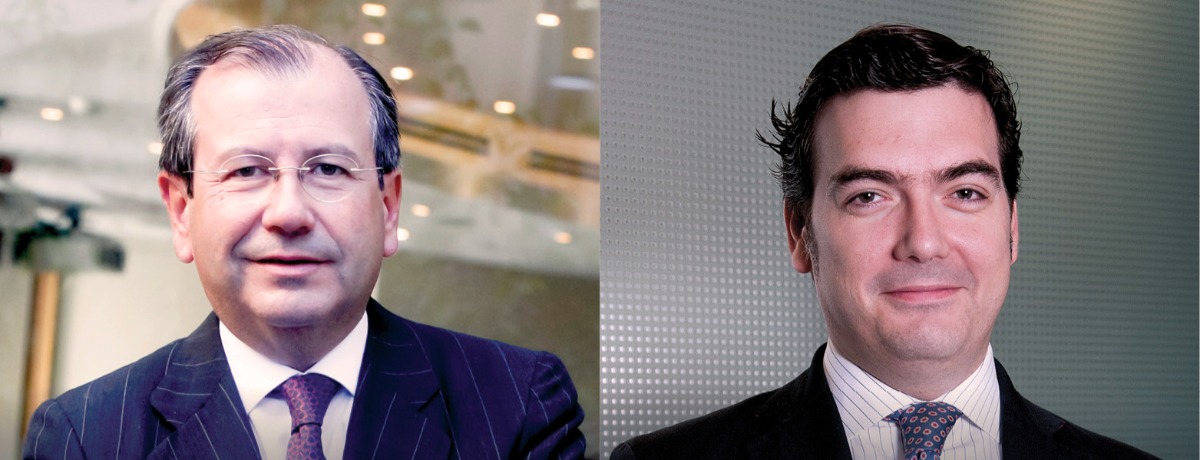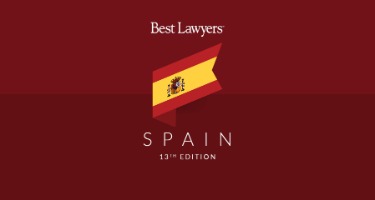With everything at a standstill and uncertainty looming around every corner as the coronavirus pandemic continues on, one law firm speaks to how companies can manage their liquidity. Garrigues was recently named Spain's "Law Firm of the Year" in Capital Markets Law. Partners Fernando Vives, head of the firm, and Gonzalo García-Fuertes, both based in Madrid, comment about the current environment.
What does it mean to have your practice recognized by its peers as the top 2020 law firm for capital markets law?
Fernando Vives: We are very proud and very grateful. We are always thankful for our clients, who are at the center of our business, but this is a special recognition since it’s coming from our peers. We believe that with our top standards, hard work, and our fair and collaborative approach with counterparts, regulators and peers, we are helping not only our clients but also our legal profession, as a relevant player in the capital markets system. This honor is a great encouragement to continue improving our firm in a very competitive market.
What do you expect to see in capital markets in the near future?
Gonzalo García-Fuertes: While we write these lines, we are in the middle of the extraordinary situation created by the COVID-19 pandemic. Teleworking has become standard in services companies, and all non-essential industrial activities are closed. In these times, companies need to be very imaginative about managing their liquidity, including by obtaining additional funds through non-traditional or more innovative financing methods, or a combination of both, depending on the company’s characteristics. Companies should also attempt to increase cash flows (by reducing expenses) as much as possible.
One way to obtain additional liquidity is to turn to debt capital markets. Indeed, various investment-grade issuers (both banking and corporate) from Spain and elsewhere in the European Union have managed to recently issue and place notes—both long-term notes and short-term commercial paper—on the international capital markets. The European Central Bank has expanded its purchase programs for these securities; therefore, issuance of debt securities will be a big trend, as it not only helps companies increase and preserve their liquidity but also frees up banks’ funds for other companies that cannot reach debt capital market investors. Although issue prices may have taken a hit, some placements have a tremendous surplus demand. On the downside are the high-yield issues, a market in which access was already extremely limited (and, at present, one that is practically closed). Many companies in this segment have had to announce the temporary discontinuation of their activity. Given the current situation, this clearly scares away investors who, despite having a high-risk profile, are looking to weather the storm with other more secure investments.
The equity area is another world altogether. Even before COVID-19, volatility in the stock capital markets, and the drumbeats of recession hampered activity in Spanish equity capital markets. There have been very few new initial public offerings (IPOs). Only the very best Spanish international companies were able to resist the market pressures and go public. That said, once things calm down, we do expect to see some flotations. Also, in Spain, we see a trend coming from the U.S. market: to avoid the pressure that a book building roadshow may imply in these market conditions. More companies and sponsors are thinking about exiting their investments through a direct listing. In this process, fundraising is decoupled from listing, and private investors—who purchased or received their shares before the company was public—can trade their shares as soon as it is listed. For example, this is how Bankinter should exit from its investment in Línea Directa, distributing shares of the latter to Bankinter shareholders and listing them as soon as possible thereafter. Although for the newly listed company, while the process could be similar to an IPO, there are some differences (for example, an “investor day” will be held, in which all investors and the public receive the same information in the same way, and at the same time, instead of a limited roadshow, an estimated “reference price” will be used instead of IPO pricing obtained from market supply and demand).
Are there any other upcoming trends or other work you expect to see?
FV: Due to the downside of the stock markets, a lot of companies that were expensive before could become more attractive to investors. To avoid speculation and the risk of foreign investors purchasing strategic Spanish companies, the government has introduced certain prior authorization requirements for the purchase of listed companies. But once the state of emergency is over, these companies may have very low stock prices or even require equity capital injections, which may lead to more tender offers and/or public M&As for these businesses.
Furthermore, Directive (EU) 2017/828 of the European Parliament and of the Council of May 17, 2017, amending Directive 2007/36/EC as regards the encouragement of long-term shareholder engagement will be implemented in Spain, and the Spanish Corporate Governance Code for listed companies will be reviewed to update it to the latest trends, setting the highest possible standards in corporate governance regulation, which will help Spanish listed companies attract international investors in today’s competitive and stressful conditions.
At Garrigues, we define our business model not only in terms of assisting clients with their investments but also getting to know their businesses and the sector in which they operate. This allows us to offer an effective service, tailored to their particular needs, something that will be essential in this unprecedented market scenario.
































